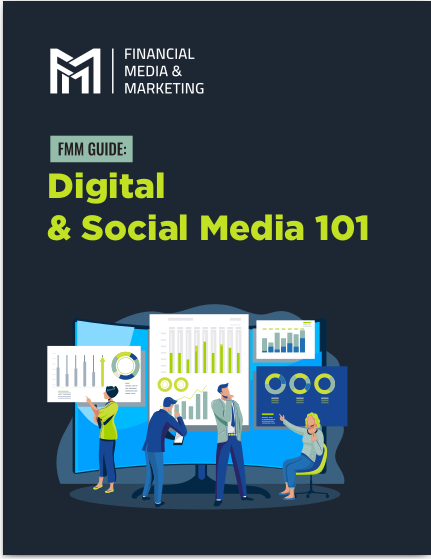Key Takeaways
- Effective SEO strategies are essential for financial advisors to increase their online visibility and attract more clients.
- Conducting keyword research, optimizing website content, and focusing on local SEO are crucial steps in improving search engine rankings.
Top 7 SEO Tips and Tricks for Financial Advisors: Time to Attract More Clients
In the competitive world of financial advisory, having a strong online presence is crucial to attracting and retaining clients. Search Engine Optimization (SEO) is a powerful tool that can help financial advisors increase their visibility, drive traffic to their websites, and ultimately grow their client base. This article explores seven essential SEO tips and tricks that financial advisors can use to enhance their online presence and attract more clients.
Conduct Keyword Research
Keyword research is the foundation of any effective SEO strategy. It involves identifying the terms and phrases that potential clients use when searching for financial advisory services online.
Identify Relevant Keywords
Start by brainstorming a list of keywords related to your services. These could include terms like “financial advisor,” “retirement planning,” “investment strategies,” and “tax optimization.” Use keyword research tools such as Google Keyword Planner, Ahrefs, or SEMrush to expand your list and find additional relevant keywords.
Analyze Keyword Competition
Not all keywords are created equal. Some may be highly competitive, making it difficult to rank for them, while others may have less competition and offer a better opportunity for ranking. Use keyword research tools to analyze the competition and search volume for each keyword. Focus on long-tail keywords—phrases that are more specific and less competitive, such as “financial advisor for small businesses” or “retirement planning for teachers.”
Incorporate Keywords Naturally
Once you have identified your target keywords, incorporate them naturally into your website content. Avoid keyword stuffing, which can negatively impact your rankings. Instead, aim for a natural flow of keywords in your text, ensuring they fit seamlessly within your content.
Optimize Your Website Content
Optimizing your website content is crucial for improving your search engine rankings and providing a better user experience. Here are some key areas to focus on:
Create High-Quality Content
High-quality content is essential for SEO. Ensure that your website provides valuable, informative, and engaging content that addresses the needs and concerns of your target audience. This can include blog posts, articles, guides, and case studies on topics such as investment strategies, retirement planning, and financial management.
Use Header Tags
Header tags (H1, H2, H3, etc.) help organize your content and make it easier for search engines to understand its structure. Use H1 tags for main titles, H2 tags for subheadings, and H3 tags for smaller sections within subheadings. Including your target keywords in header tags can also improve your SEO.
Optimize Meta Descriptions and Title Tags
Meta descriptions and title tags are crucial elements of on-page SEO. The title tag appears in search engine results as the clickable headline for a given result, while the meta description provides a brief summary of the page content. Ensure that both include relevant keywords and accurately describe the content of the page.
Focus on Local SEO
Local SEO is essential for financial advisors who want to attract clients in their geographic area. Here are some strategies to improve your local SEO:
Claim and Optimize Your Google My Business Listing
Google My Business (GMB) is a free tool that allows businesses to manage their online presence on Google Search and Maps. Claim and optimize your GMB listing by providing accurate information about your business, including your address, phone number, website, and business hours. Encourage satisfied clients to leave positive reviews on your GMB listing, as this can improve your local rankings.
Include Local Keywords
Incorporate local keywords into your website content, meta descriptions, and title tags. For example, if you are a financial advisor in New York, include phrases like “New York financial advisor” or “financial planning in New York” in your content.
Create Local Content
Publishing content that is relevant to your local audience can help improve your local SEO. This could include blog posts about local financial trends, events, or news that impact your community. Additionally, participate in local events and sponsor local organizations to increase your visibility and build backlinks from local websites.
Improve Website Load Speed
Website load speed is a critical factor for both user experience and SEO. Search engines prioritize fast-loading websites, as they provide a better user experience. Here are some tips to improve your website’s load speed:
Optimize Images
Large image files can significantly slow down your website. Optimize your images by compressing them and using the appropriate file formats. Tools like TinyPNG and JPEGoptim can help reduce the file size of your images without compromising quality.
Use a Content Delivery Network (CDN)
A CDN distributes your website’s content across multiple servers around the world, ensuring that users can access it quickly from any location. This can significantly improve your website’s load speed and overall performance.
Minimize HTTP Requests
Each element on your webpage (images, scripts, stylesheets, etc.) requires an HTTP request to load. Minimizing these requests by combining files, using inline images, and removing unnecessary elements can help speed up your website.
Use High-Quality Backlinks
Backlinks are links from other websites to your own, and they are a crucial factor in SEO. High-quality backlinks from reputable websites can significantly improve your search engine rankings. Here’s how to build a strong backlink profile:
Create Shareable Content
Publishing high-quality, informative, and engaging content increases the likelihood that other websites will link to it. Focus on creating content that provides value to your audience, such as in-depth guides, industry reports, and expert insights.
Guest Blogging
Contributing guest posts to reputable websites in your industry can help you build backlinks and establish yourself as an authority. When guest blogging, include a link back to your website in the author bio or within the content if allowed.
Build Relationships with Influencers
Networking with influencers and other professionals in your industry can lead to backlink opportunities. Engage with them on social media, comment on their blog posts, and collaborate on content projects to build strong relationships.
Leverage Social Media
While social media signals do not directly impact search engine rankings, having a strong social media presence can drive traffic to your website and increase visibility. Here are some tips to leverage social media for SEO:
Share Your Content
Regularly share your blog posts, articles, and other content on your social media profiles. Encourage your followers to engage with and share your content, increasing its reach and driving traffic to your website.
Engage with Your Audience
Actively engage with your audience on social media by responding to comments, participating in discussions, and answering questions. Building relationships with your followers can lead to increased brand loyalty and more traffic to your website.
Use Social Media Advertising
Social media advertising can help you reach a larger audience and drive targeted traffic to your website. Platforms like Facebook, LinkedIn, and Twitter offer various advertising options that allow you to target specific demographics and interests.
Monitor and Analyze Your SEO Performance
Regularly monitoring and analyzing your SEO performance is essential for identifying areas for improvement and ensuring your strategies are effective. Here’s how to do it:
Use SEO Tools
There are several SEO tools available that can help you monitor your website’s performance, including Google Analytics, Google Search Console, Ahrefs, and SEMrush. These tools provide valuable insights into your website’s traffic, keyword rankings, backlinks, and more.
Track Key Metrics
Track key SEO metrics such as organic traffic, bounce rate, average session duration, and conversion rate. Analyzing these metrics can help you understand how well your website is performing and identify areas for improvement.
Adjust Your Strategies
Based on your analysis, adjust your SEO strategies as needed. If certain keywords are not performing well, consider targeting different ones. If your website’s load speed is slow, implement measures to improve it. Continuously refining your SEO strategies will help you stay competitive and attract more clients.
Conclusion
Implementing these top SEO tips and tricks can significantly enhance your online presence and help you attract more clients. By conducting keyword research, optimizing your website content, focusing on local SEO, improving website load speed, using high-quality backlinks, leveraging social media, and monitoring your SEO performance, you can achieve higher search engine rankings and drive more traffic to your website. As a financial advisor, staying up-to-date with SEO best practices is essential for maintaining a competitive edge and growing your client base.










